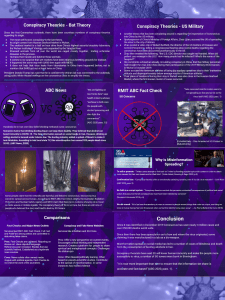Group project website
https://finnic.godaddysites.com/
Interview with Ms Hu
Interview with Caldwell
 Group Project Summary
Group Project Summary
The topic our group has explored – for assignments 3 through 5 – is the coronavirus pandemic. Our group decided to present our findings as an audio-visual work – specifically, a kind of neo-video essays, which employs interviews and other audio aspects traditionally found in a podcast format. We have collectively addressed the biological nature of the virus, how it spreads and the possible symptoms that may manifest if infected. As well as this, we have plunged into the world of conspiracies to see if they are deserving of any credence. In light of past cases in which viruses have leaked from biosafety laboratories people have been quick to connect the Wuhan Institute of Virology to COVID-19. However, many Chinese social media channels speculate the virus originated in America and was brought to China but military personnel. For assignment #4 we have put a significant focus on the spread of misinformation. Notably, in Iran where the consumption of alcohol is prohibited under Islamic law, misinformation circulating on social media platforms claimed that drinking bootleg alcohol creates immunity to the virus. However, misinformation is not just spreading through illegitimate news sources, US President Donald Trump has created a consummate display of propaganda – claiming one-day the virus is not a threat, and then the next stating he has understood the seriousness of this issue from the beginning. This has resulted in a public who can neither trust government authorities nor unverified news outlets. While social media platforms have had a stab at mitigating the spread of misinformation, some authorities worry about the ethical implications of an undemocratic ruling endowing large corporations with the control of censorship. This audio-visual work aims to educate, and inspire people to critically think about the media they are consuming on a day-to-day basis and encourage fact-based news practices.
Zhanhoa Lin (s3779283)
Janelle Lim (s3716891)
Qingshan Dong (s3628179)
Jack Long (s3698176)
